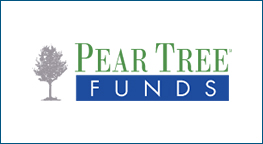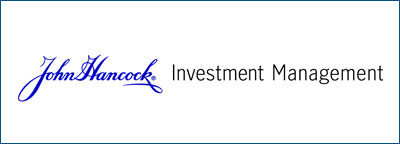Responding to Coronavirus
As we continue to monitor the global spread of COVID-19 and evaluate the new developments coming from the CDC and other organizations, we wanted to provide an update on the actions Axiom is taking in regard to the health and safety of our colleagues and clients as well as give you an update on the portfolios.
Dear Clients & Friends:
We hope this email finds you and your family healthy and safe. As we continue to monitor the global spread of COVID-19 and evaluate the new developments coming from the CDC and other organizations, we wanted to provide an update on the actions Axiom is taking in regard to the health and safety of our colleagues and clients as well as give you an update on the portfolios.
At Axiom Investors, we place the safety and health of our colleagues and clients in the highest regard. Earlier this month, the U.S. Center for Disease Control (CDC) advised American businesses to begin preparing for the possibility of a larger outbreak of COVID-19 within the United States. In response to the advice from the CDC, Axiom immediately communicated restrictions related to travel and in-person meetings and guidelines for working remotely. Our long-standing Business Continuity Plan (BCP) has prepared us for the event where we would need to ask our employees to work from home. Over the past several weeks, we have conducted BCP testing and are confident our daily operations and level of client service will remain unchanged with its employees working remotely.
From an investment perspective, the global social and business interruptions resulting from government policies to mitigate the pace of transmission of COVID-19 are creating near-term uncertainty about the depth and duration of the resulting economic slowdown. While potentially helpful in the medium-term, the fiscal and monetary stimulus measures that have been intended to offset fears of a severe near-term slowdown have increased the near-term volatility. Also, adding to the volatility has been the breakdown in the energy sector. This macro pressure is feeding into company fundamentals as some portfolio companies are withdrawing near-term guidance or warning that the current headwinds reduce the near-term earnings outlook. However, no portfolio company is showing balance sheet stress or warning about the medium- or longer-term outlook suggesting the portfolio will recover strongly when the near-term uncertainty stabilizes.
From a general portfolio perspective, we have not made dramatic changes to our positioning. Earlier in the year, we reduced exposure to travel related companies and companies that relied heavily on travel retail. We recognized such companies would likely be negatively impacted by a reduced willingness to fly as well as specific government restrictions, such as the banning of group tours and closing of major tourist attractions. We have added selectively to our most economically resilient holdings recognizing that the accelerating travel bans and quarantines have created downside risk to near-term earnings for most companies and sectors. We do not see strong evidence that the medium- and longer-term earnings and cash generation potential of our portfolio has been impaired and, therefore, we continue to expect that earnings and valuations will recover. We remain focused on companies with strong balance sheets and solid competitive positions that will benefit from long term secular trends, however, the near-term supply chain disruptions and demand weakness do pose risks.
Regarding outlook, overall, we see some tentative progress in recovery of normal economic activity in China and, more recently, South Korea. Business activity is slowly resuming, although travel restrictions and quarantines have delayed normal operations. Meanwhile, outside of China, South Korea, and Singapore, the number of new oases is still in the exponential growth stage. As a result, the market impact is dramatically expanding on a global basis. While the in initial public health measures in the US and Europe have not inspired confidence, the apparent successful mitigation of the virus spread in a variety of countries including China, South Korea, and Singapore suggest that as public health measures gear up, public confidence in efforts to limit the duration and severity of the downturn might rebound even as improved testing will result in the number ofreported oases to rise. In China, fiscal and monetary stimulus have helped offset near term earnings concerns and supported financial markets. If global markets follow the same pattern as seen in China (especially A-shares), then the current panic could be a buying opportunity when the growth rate in the number of new oases starts to decelerate. From a policy perspective, global rates, notably in the US, are at historic lows and policy makers are rapidly accelerating monetary and fiscal stimulus measures. Longer-term, we believe the current challenges underscore the attractiveness of high-quality Dynamic Growth stocks able to compound durable growth and sustained returns despite the macroeconomic and geopolitical challenges. We believe high quality growth stocks will continue to generate attractive returns for investors that are able to take advantage of the current volatility to add at what are likely to prove attractive levels.
We will continue to provide additional information as it becomes available and we thank you for your continued support. If there is any additional information that would be helpful, please don’t hesitate to reach out to a member of Axiom’s client service team below.
Kindest regards,
Axiom Investors
Kurt Polk, CFA
President
203-422-8030
[email protected]
Brian Bader
Senior Vice President/Client Service and Marketing
203-422-8049
[email protected]
Lindsay Chamberlain
Senior Vice President/Client Service and Marketing
203-422-8039
[email protected]
Steve Hanson
Vice President/Client Service and Marketing
203-422-8085
[email protected]

